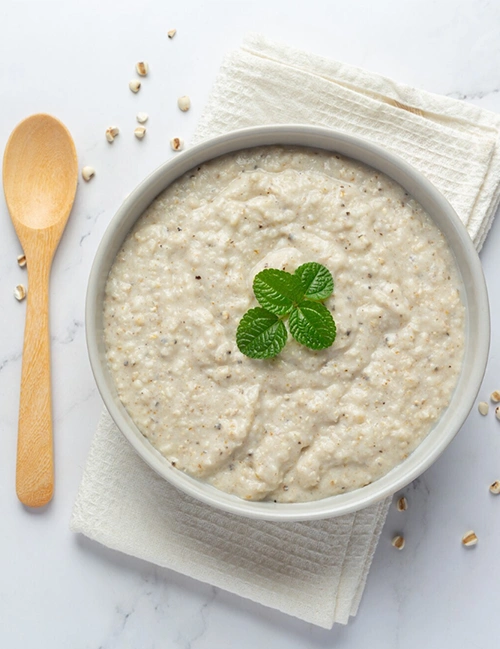

Top Health Benefits of Cassava Porridge You Need to Know
Cassava Coconut Porridge is a nutrient-dense dish primarily rich in complex carbohydrates, offering a slow and steady release of energy—making it ideal for breakfast or as a midday energy booster. Cassava is a good source of dietary fiber, which aids digestion and promotes gut health. It also contains essential minerals like magnesium, calcium, and potassium that contribute to bone strength, electrolyte balance, and cardiovascular health. When prepared with coconut milk, the porridge adds medium-chain triglycerides (MCTs), which are healthy fats known for supporting brain function and boosting metabolism. Additionally, this dish is naturally gluten-free, making it suitable for individuals with celiac disease or gluten intolerance, while being plant-based and free of animal products, making it compatible with vegan and vegetarian diets.
Recipe :
For 4 people
Enjoy your comforting and tropical Cassava Coconut Porridge!
When preparing cassava porridge, it is crucial to ensure the cassava is properly peeled and thoroughly cooked, as raw cassava contains naturally occurring cyanogenic glycosides that can be toxic if not treated correctly. Always use fresh or well-processed cassava, and if using frozen grated cassava, defrost and rinse it well before cooking. Stir the porridge consistently while simmering to prevent it from sticking to the bottom of the pot and to achieve a smooth, lump-free texture. Adjust the liquid gradually, as cassava thickens significantly during cooking. If using coconut milk, add it after the cassava is mostly cooked to prevent curdling and to retain its aroma. Sweeteners, spices, and garnishes should be added at the final stage to preserve flavor and texture balance.

Cassava Coconut Porridge is best suited for vegan, vegetarian, and gluten-free diets, thanks to its plant-based ingredients and absence of gluten-containing grains. However, it is not suitable for ketogenic, low-carb, or paleo diets, as cassava is high in carbohydrates and has a high glycemic index. Individuals on a low-calorie or DASH diet should consume this dish in moderation due to its calorie density and natural sugars, especially if sweeteners are added. It is also relatively low in protein, so it may not meet the needs of high-protein diet followers unless supplemented with ingredients like chia seeds, plant protein powder, or nut butter. Those practicing intermittent fasting can include this porridge as a refeeding option after a fast, but portion control is recommended due to its energy density.
...